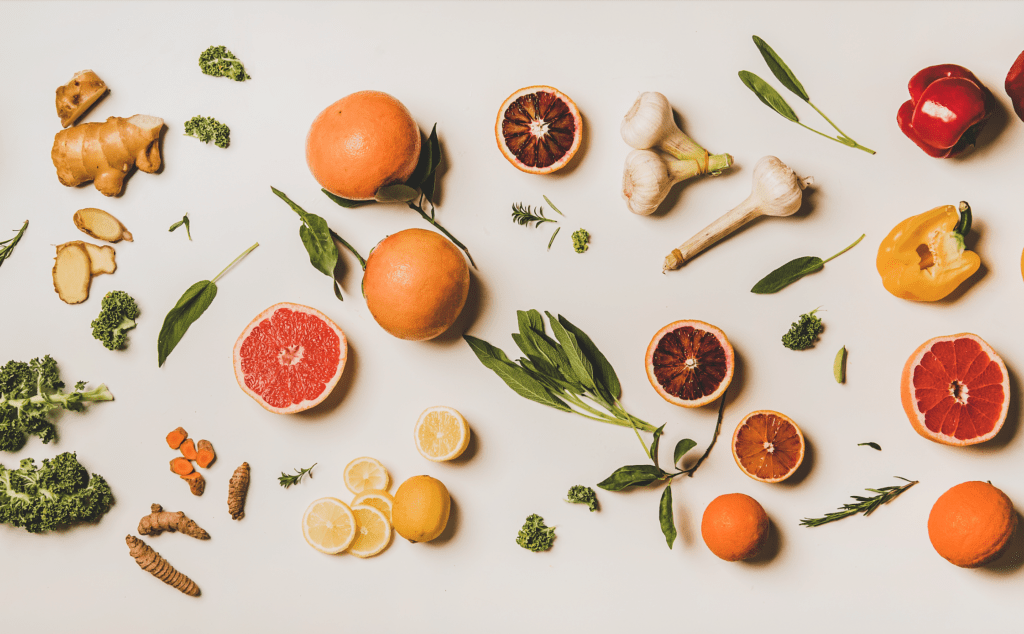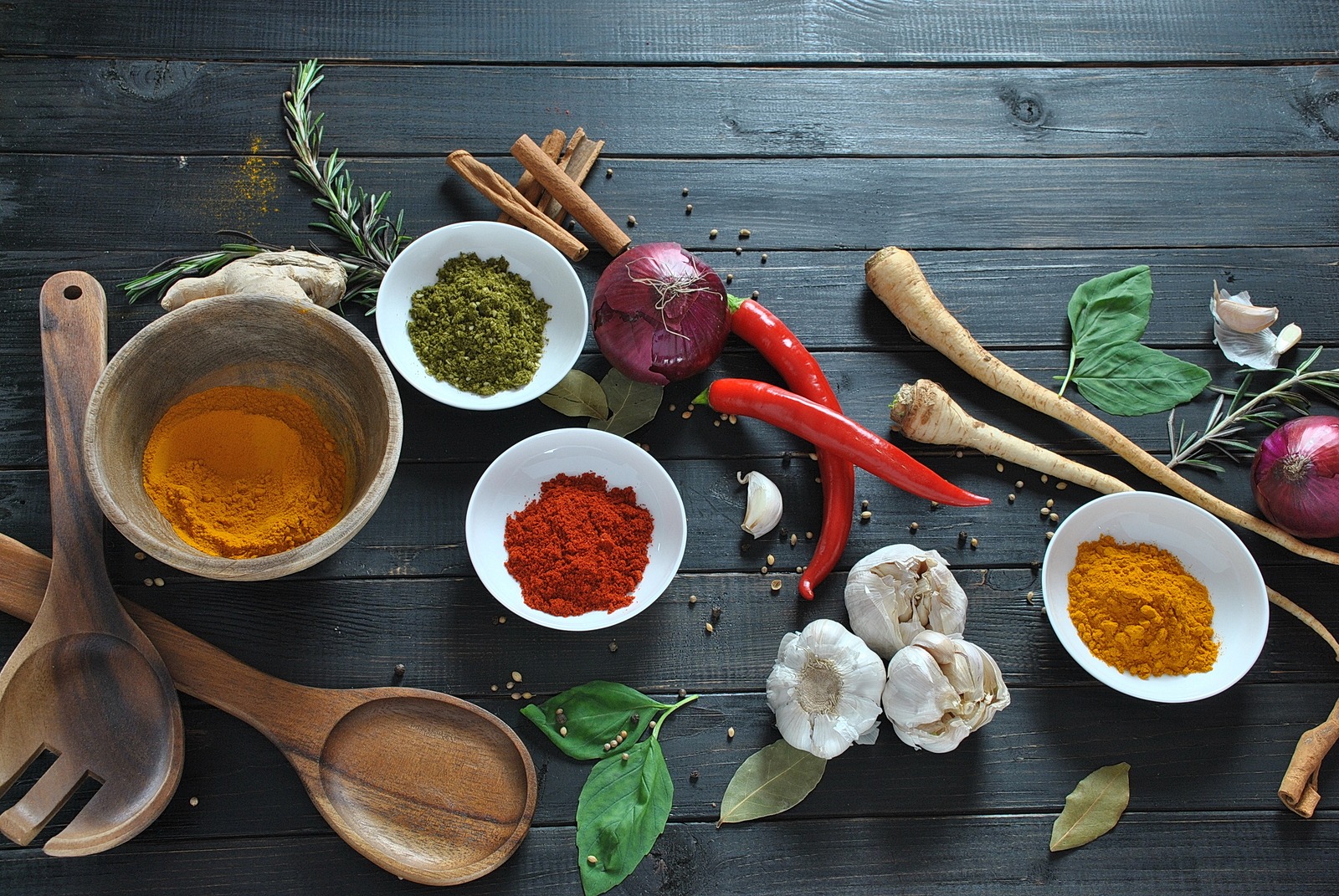Blog
Less sugar and more real food to strengthen the immune system

It is widely accepted that too much added sugar is not great for health.
Specifically, then, how might excess added sugar intake impact the immune system?
Sugar and the immune system
Past research indicates immune system activity is suppressed following the overconsumption of free sugars, particularly fructose (though some scientists feel more studies in humans to further support this are needed).
Sugar may also inhibit the activity of vitamin C. And we all know how vitamin C is a stalwart in the fight against infection!
However, what we should be more concerned with is the quality of the overall diet and its effect on immune function.
Chronic, excess added and free sugars — and the ultra-processed food and drinks they come in — can increase inflammation, placing more strain on the immune system.
Importantly, they displace healthier foods and nutrients in the diet.
Key nutrients from real, whole foods help build the body’s defences, including the health of the intestinal microbiome.
The mucosal lining of our intestine (a.k.a. gut) is one of our first lines of defence to harmful pathogens and other substances. To maintain a healthy lining, we require help from the beneficial gut bugs of the intestinal microbiome. In turn, to support these little fellas to flourish, we must feed them with the appropriate fuel they need to thrive.
When the composition of beneficial bugs in our gut is degraded, due to factors such as a poor diet high in added sugars and ultra-processed foods (i.e. a typical Western-style diet), our intestinal lining is weakened making us more vulnerable to illness.
What you eat matters.
While a little processed food or added sugar will not break the health bank, if you want to bolster your immune system, consider very carefully what you choose to eat and whether it will nourish you, your immune system, and your beneficial gut bugs.
What to do
Here are some dietary and lifestyle choices we can make in our everyday lives to assist immune system function and get out bodies healthier.
Eat real food
First and foremost, to help your overall health and immune system function, enjoy a diet largely comprised of antioxidant-rich, nutrient-dense, whole foods.
Whole or minimally processed foods deliver immune-supporting nutrients, while also helping feed beneficial bugs in our gut microbiome. (We have explained why this is important above.) In short, they love fibre, and fermented foods are helpful, too!
If the foundation of your diet is based on seasonal vegetables and some fruit, and whole food sources of fibre, healthy fats, and quality protein, you are on the right track. Eat organic, if possible.
Get good quality sleep
Just as important as eating real food is getting proper sleep. Only when we get adequate and good quality snooze time can our body restore and the immune system operates at its best!
Lacking good sleep, stress hormones are produced to keep us going. The stress hormones can suppress immune function and further hinder the next opportunity to get quality sleep.
Additionally, the rest undertaken at night coincides with the natural circadian rhythm, associated with increased sensitivity to detecting infectious bugs and supporting long-term immune function.
Aim for 7-8 hours of quality snooze time, preferably starting earlier in the evening. (Read here for more.)
Contending with a racing mind? Undertake diaphragmatic breathing, journalling, or mindfulness practice to slow things down.
Limit or avoid ultra-processed food
Ultra-processed food and beverages, often containing artificial ingredients, refined unhealthy oils, and excess sodium and added sugars, only cause harm to the microbiome and deplete the body of beneficial nutrients and its ability to fight infection. Swap out for the real, whole nutrient-dense foods, as suggested above.
Load up on garlic, ginger, herbs, and spices
Get some garlic, ginger, herbs, and/or spices into each and every meal! Garlic and ginger offer beneficial antimicrobial properties, with garlic, in particular, a superstar for fighting infections.
Many culinary herbs and spices offer potent antioxidant, antibacterial, and anti-inflammatory qualities and can be added to most meals, such as soups, stir-fries, and smoothies. Have fun experimenting with an array of tasty offerings. Think thyme, basil, rosemary, oregano, cinnamon, and turmeric.

Enjoy plenty of immune-supportive nutrients and antioxidants
Increase intake of whole foods containing key immune-supportive nutrients, including zinc, iron, omega-3 fatty acids, and vitamins A, C, D, and E.
Think citrus, carrots, sweet potato, pineapple, ginger, turmeric, and garlic, as well as plenty of greens, herbs, and spices. Include quality protein in the forms of legumes, nuts, seeds; wild or free-range, grass-fed meats; and sustainably caught fresh fish.
Antioxidant-rich food is also great for enhanced defence. There are many different antioxidants found in an array of whole foods, serving different functions.
To benefit from what they have to offer, eat the rainbow and enjoy a variety of foods, including berries, green leafy and cruciferous vegetables, pumpkin, carrot, tomato, avocado, leeks, onions, garlic, sprouts, nuts, seeds, legumes, herbs, spices, and more.
H20 is the way to go
Keep fluids up and drink at least 2L of water throughout each day. Herbal teas such as green, ginger, or turmeric are useful additions to overall fluid intake, as are broth and soups.
Rich in zinc and other gut-healing nutrients, broth is easily digested and warming to boot. These qualities are what made the humble chicken soup for the sniffles so good! Homemade is great — cook up a base using seasonal vegetables and herbs, and add free-range or grass-fed, organic bones.
Manage stress
Stress can suppress immune function, so find ways to manage ongoing stressors that suit your interests. Ideas include meditation, taking several diaphragmatic breaths, having a good laugh, engaging in meaningful connections, doing some stretches or yoga, or going for a run.
Get moving, preferably outside
Fresh air, sunlight, and movement are associated with increased immune resilience. Get out for a gentle walk, and also boost mood and circulation.
Be well, friends!
By Angela Johnson (BHSc Nut Med)











